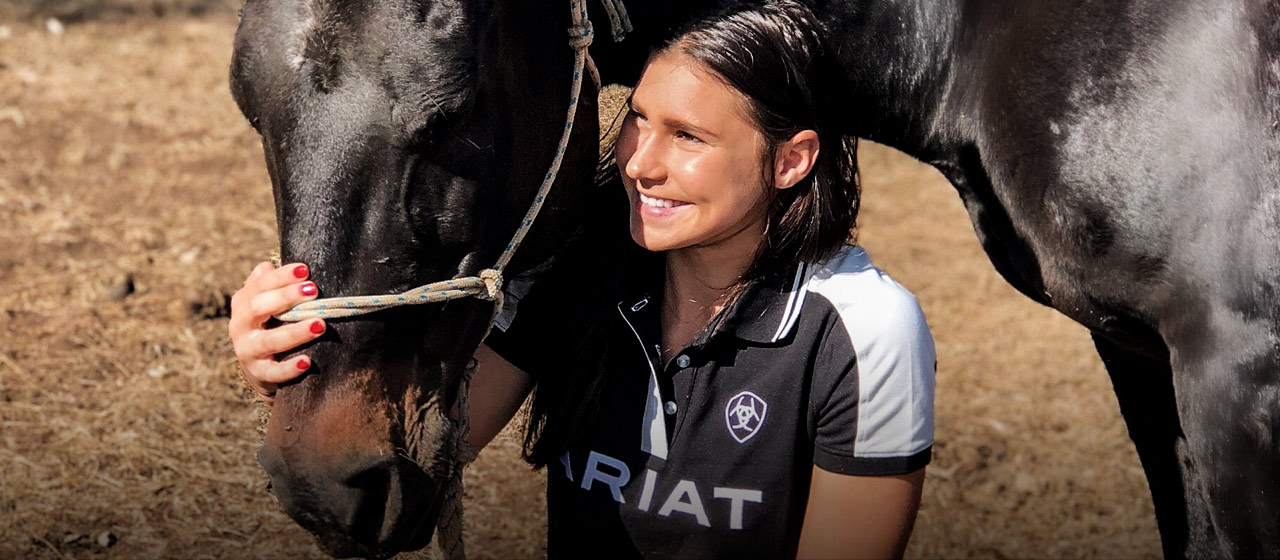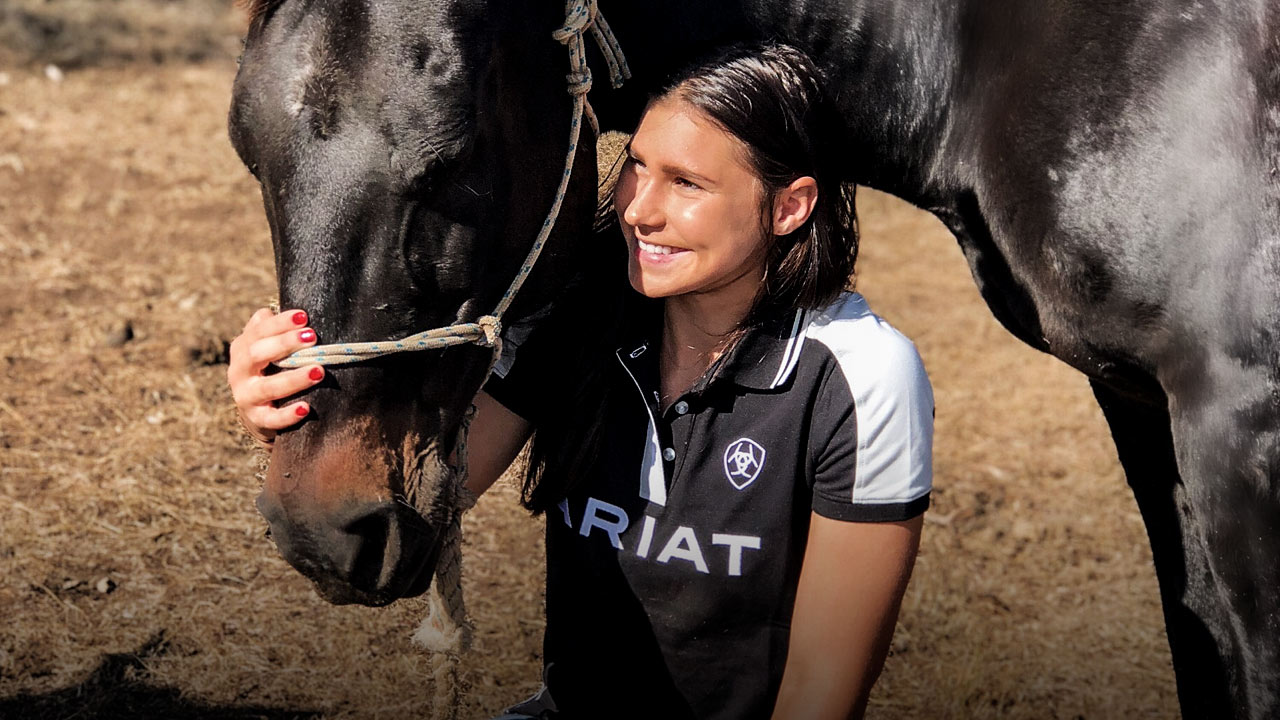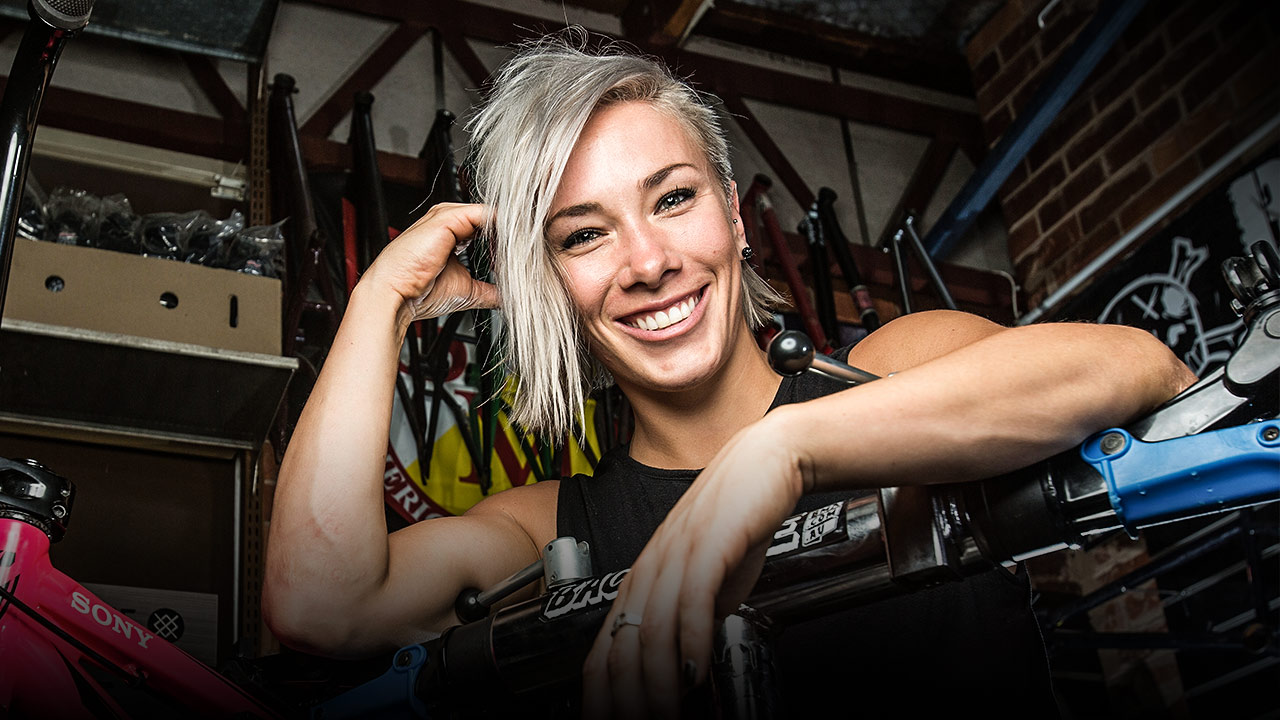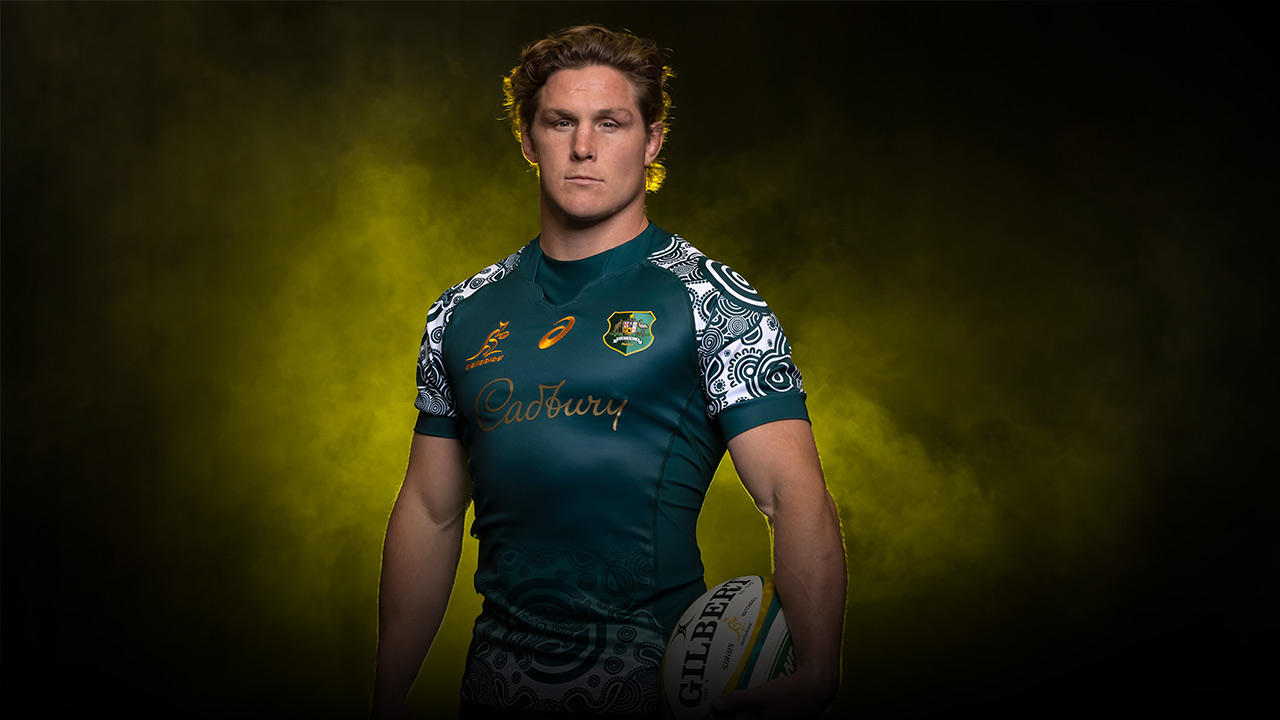Rugby
A footy dream born on the farm
It doesn’t hurt your work ethic growing up on a 19,000-acre property 26 kilometres from the closest town.
As soon as farm kids are old enough to walk, they’re helping out. On a farm, you wake up and go to work as soon as the sun’s up, if not earlier, and you don’t come home until there’s literally no sun left. It’s very different from a nine-to-five job and I think it does definitely create a work ethic within you.
As a professional sportsperson who plays rugby sevens for Australia, I think growing up on the farm has also helped with my fitness. Growing up on the property, every afternoon you’d come home from primary school and do cattle work in the yards or go riding on our horses.
You were always active. You didn’t often have the opportunity to just sit down and watch Netflix or cartoons at our place. Sometimes you’d wake up at five o’clock in the morning, go and muster a paddock and then be ready for school by eight o’clock.
There are always things to do on a property, whether it’s a fence to fix or other little things. You’re constantly active and running around the yards. To do horse riding you’ve got to be quite fit and active, so obviously that helped a lot as well.
I was extremely sporty from a young age. I went through primary school in Glenmorgan, a very small town in country Queensland. As a young person I didn’t necessarily like school, so I put a lot of effort into athletics, cross country, netball, every single sport I could even if I wasn’t particularly good at it.
Then I went to boarding school in Warwick in Queensland. Around that time, my dad said, ‘Demi, one day you’re going to have to pick a sport, or if you do athletics, you’ll have to pick a certain event’. I kind of just brushed that off because I always just thought I could do everything.
When I was 14 or 15, in my head I was going to go up north to be a Jillaroo and work on an extremely large cattle property. But that changed quite quickly as I got older and started to believe in myself. I knew that my (school) coaches (and family) had the belief that I could represent my country at an Olympics or Commonwealth Games one day.
With my determination, I think they believed that if I set my mind to something I would achieve it. But when I started playing rugby, they knew that I’d exceed in it. I started playing rugby sevens when I was 16. I played a lot of touch football throughout my school years, which was a huge leg-up in terms of moving forward to playing rugby rather than playing netball or a sport like that.
By the time I was in year 10 or 11, I had become extremely driven to find any way I possibly could to have a career in sport rather than go to uni straight after school, or go back to the property even though I love being home on the farm.
I was good friends with Dominique du Toit through touch football and I knew Charlotte Caslick and Emilee Cherry through Dom. In year 12, I swapped schools to go to Fairholme College in Toowoomba to have more of an advantage sporting-wise, and to follow the pathways that they did.
During this period I was a youth player and went to the youth Commonwealth Games in Samoa in year 12, where we won gold. After I graduated from school, I was offered a development contract, so I flew to Sydney for a week every month or so to train with the main squad.
I was playing for the Queensland Reds when Australia won the first-ever rugby sevens gold medal at the Rio 2016 Olympics. We all watched the final together as a team. It was all very exciting, I think it was around eight or nine o’clock in the morning in Australia, which was perfect.
I made my debut in the Australian sevens team just before Rio in 2016, so seeing them go on and win gold in Rio was awesome. It was quite an amazing experience knowing that I had been playing with them and training with them.
A BLUE RIBBON CAUSE
I don’t really have any specific superstitions, although on game days I do like to do everything quite similarly. So before we walk out for a warm up we have a thing called ‘PTP’ which means ‘prep to play’. I make sure I do the same stretches before each game otherwise it makes me feel weird, I get quite nervous and feel like I haven’t prepared properly.
I also always wear a blue ribbon in my hair for Amy Dolly Everett – a 14-year-old girl who took her own life after being badly bullied at boarding school in person and online.
You didn’t often have the opportunity to just sit down and watch Netflix or cartoons at our place. Sometimes you’d wake up at five o’clock in the morning, go and muster a paddock and then be ready for school by eight o’clock.
Dolly was a really good family friend of mine. She was from the Northern Territory and went to the same boarding school as I did, and was like a little sister to me. Mental health is such an important thing to me and I want people to be aware of people around them. I will forever wear blue for Dolly, so wearing a blue ribbon when I play means a lot to me.
The family has made a fundraising page called Dolly’s Dream, which aims to:
– increase awareness of the serious issue of bullying and its devastating effects
– work to prevent and mitigate bullying, including cyber bullying, within schools, and;
– change the culture in the community to prevent bullying and to support the victims of bullying.
Dolly’s favourite colour was blue so everything associated with the charity is blue. So I guess that wearing the blue ribbon is not so much a superstition but a tribute. We did a fair bit of publicity around the issue during the Sydney Sevens in January, so when people see the ribbon, I hope they are reminded of Dolly.
Looking to support Dolly's Dream?Choose from the Akubra Hats POH Dolly's Dream pin $20, available here:…
Posted by Dolly's Dream on Friday, 29 June 2018
LET’S CLEAR SOMETHING UP
Another issue really close to my heart is the rights of farmers.
I’ve got a bit of fire in me when there’s an issue that concerns me – you can definitely say that about me – and I recently wrote a post on my Paddock to Pitch blog called ‘Every Family Needs a Farmer’.
The post was about the issue of land clearing. The Queensland Labor Government is trying to implement new laws on land clearing rights. Their reasoning is they want to put a framework in place for the protection of native vegetation in Queensland.
But I have argued that as farmers, we selectively clear land to let various types of grass grow. By clearing land, we do it for the betterment of the property, not to damage it. In order to run a successful property and improve our land, continual maintenance (paddock clearing, fence repairs etc) is absolutely vital to get the most out of the livestock/crops on the land.
When farmers started hearing about one of the political parties wanting to have a ban on clearing a couple of years ago, a lot of the farmers got a little bit freaked out and obviously cleared land, trying to do it before the laws changed.
They said, ‘I’m not sure how to run my property without clearing my land’. Then all of a sudden the law changed and the government put it all back on the farmers, saying, ‘You’ve cleared way too much land and it’s wrecking the ocean and this and that and so on’.
As farmers, we selectively clear land to let various types of grass grow. By clearing land, we do it for the betterment of the property, not to damage it.
I think people at the lower levels of the government bureaucracy don’t necessarily understand – without having gotten in a car and driven out and experienced the entire farming lifestyle – that every farmer has a notebook and has written exactly what he wants to do, whether it’s put in a fence or a dam or move a tree so more grass can grow. There’s a lot that is not very well understood at all by people in the government.
I believe in farming. As I wrote on my blog, in floods, droughts and all types of weather, farmers continue to provide the Australian public with food and commodities each day; whether it is certain meats, grains, wool, fresh fruit or vegetables. All primary producers show persistence and resilience in tough times that many Australians will never have to deal with or understand.
The stress on farmers caused by the Queensland Labor Government is completely uncalled for.
So yes, I guess I am a country girl at heart. But am I becoming a city girl? I don’t know if my mum and dad would like to hear this, but I do enjoy the city!
But, of course, I also really enjoy being at home with the fresh air. I like to do camp drafting and horse work. I do really love horses, so I think one day I will head back to the country – I suppose time will tell.
When I was younger, I saw how hard my parents had to work just to get where they are now with the property. That’s not necessarily the path I want to follow in life, but I would love to own a little property with some horses and cattle.
I also love the media so I might go down that pathway post-rugby. That would obviously be really hard to do from the country, but I still think I’ll end up in the country again one day.
For now, it’s all about rugby. Not many of us really have the time for jobs because of how much effort goes into training well and playing well. But there is a horse in Sydney that I get to go and ride every now and then, and kind of have a breath of fresh air, an escape. Sometimes I just go sit with him and give him a feed.
More about: Charlotte Caslick | Queensland Reds | Rio 2016 | Rugby Sevens | Women's Rugby | Women's Sport






 Load More
Load More